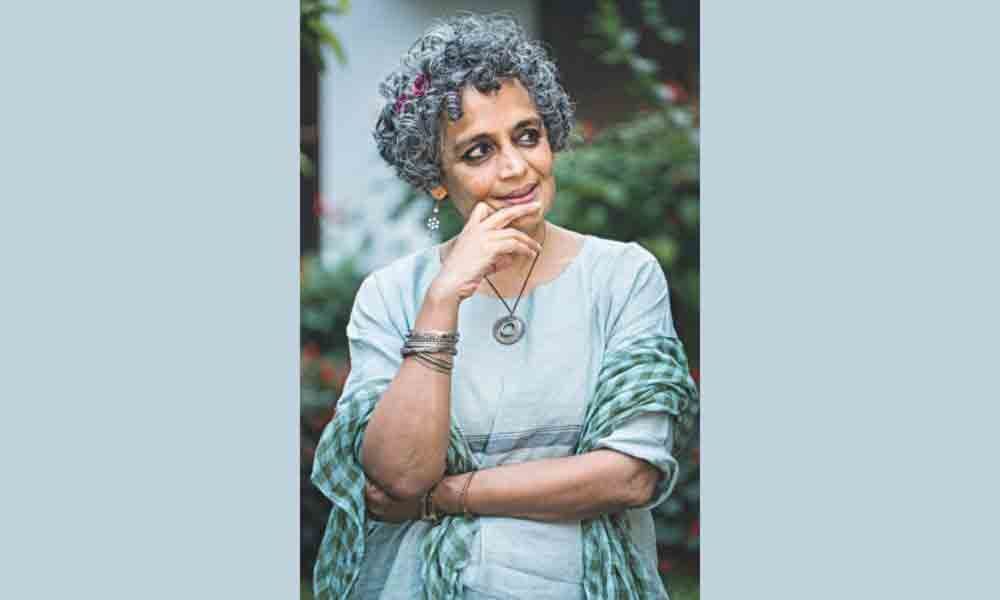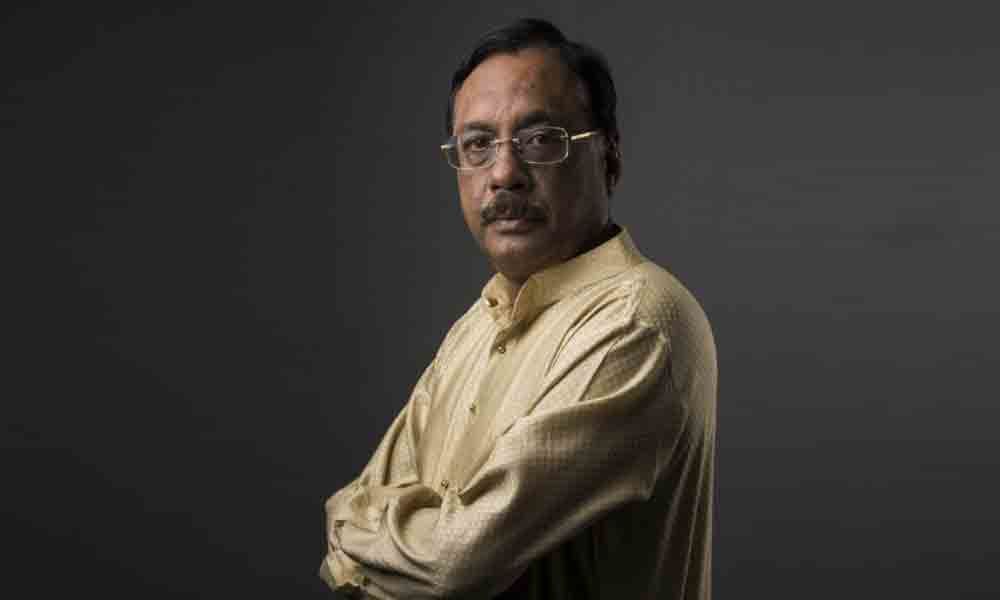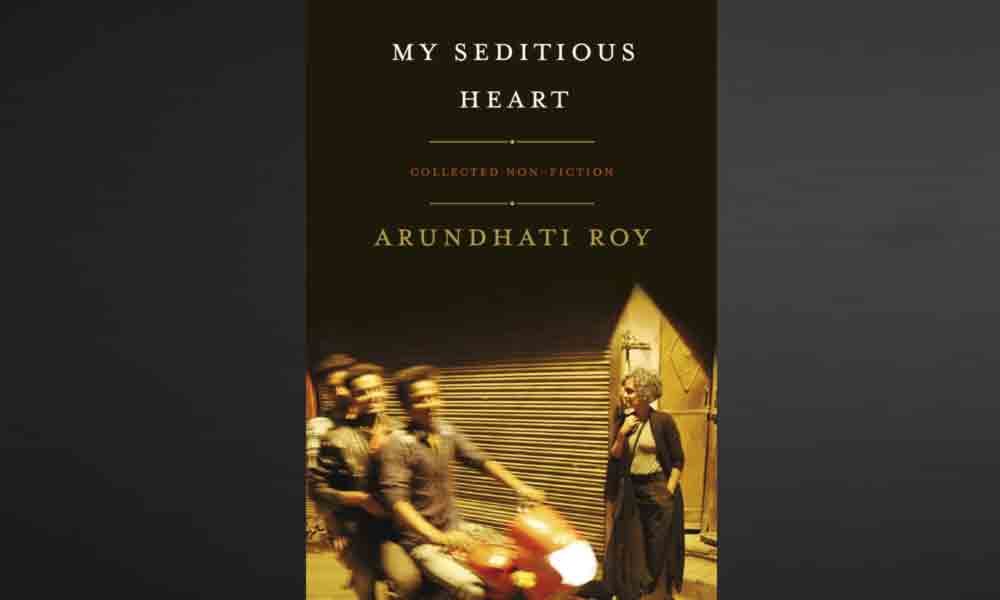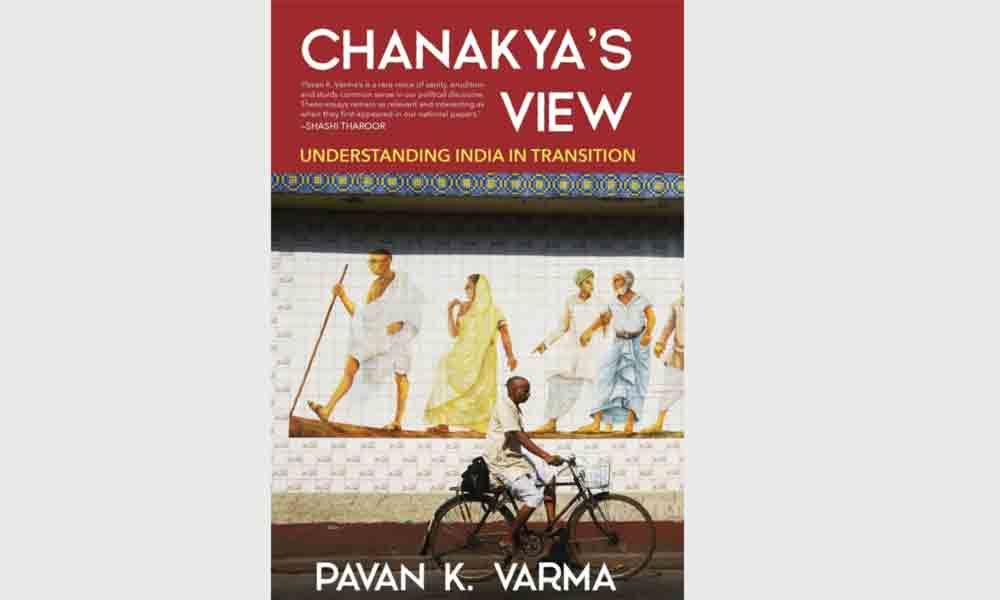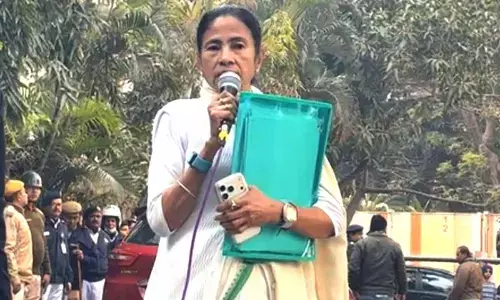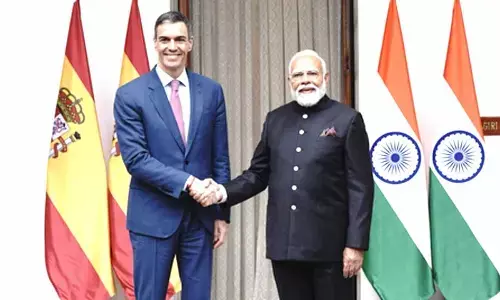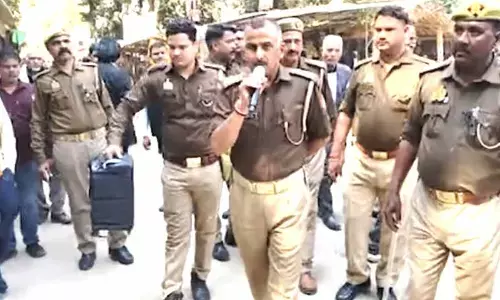Pavan Varma, Arundhati Roy a fascinating study in contrasts
One is a veteran diplomat-turned-politician - and by no means writer to boot. The other is an award-winning author and human rights activist. It's extremely rare to simultaneously be presented with two new works by Pavan K Varma and Arundhati Roy and thus one approached the former with confidence and the latter with, trepidation
Pavan Varma's new book, "Chanakya's View - Understanding India In Transition" is precisely like that. Like in the case of AVM Mehta, one can actually imagine the wheels turning in Varma's head as he wrote these 79 articles over a period of six years. Every one of them is precise and well-reasoned - which is what made Varma the respected diplomat and commentator that he is.
Roy's book, "My Seditious Heart - Collected Non-Fiction" is a collection of 46 essays that span the two-decade period from her Broker Prize winning "The God of Small Things" to "The Ministry of Utmost Unhappiness" - but essentially for lost causes like the Narmada Bachao Andolan.
Before I proceed further let me state unambigiously and proudly that I am a Sikh by religion and absolutely apolitical so let it not be said that I speak for or against the two principal parties at the opposite ends of the political spectrum.
"It is my hope," says Varma, "that this book will ignite discussion and deliberation in a bipartisan spirit, keeping the overall good of our motherland in mind for the interests of the nation must come first and last. If it succeeds in promoting vimarsha and charcha - reflection and debate - then I would be amply rewarded. If Chanakya were alive today, he would, I am sure, have welcomed this reflection and debate too".
Roy will have none of that. Her essays were "never meant as neutral commentary, pretending to be observations of a bystander... They were written when a certain political space closed won, when a false consensus was being broadcast, when I could no longer endure the relentless propaganda and the sheer vicious bullying of vulnerable people by an increasingly corporatized media and its increasingly privatized commentators".
Varma's take?
"I strongly believe that India is nowhere close to becoming a Fascist State," he wrote in an article which first appeared in November 2015 but which is still relevant by virtue of being included in the book. "But still, it is important to learn the right lessons from history. Undoubtedly, a democracy should have effective economic governance, but it should also allow the freedom to dissent and debate. The equation is not either-or. To critique the ruling party or to disagree with its policies cannot be construed, in a democracy, as an anti-national act. Nor should a subversive and mala fide motivation be ascribed to every act of disagreement. Unfortunately, this is precisely what is happening today...This is, to say the least, both undemocratic and rather silly."
Let me explain this in another way. There are two ways of writing a news story. The first is, "Hey, boss, this is what I have learnt and I want to pass on this knowledge to you". The other is, "Listen, this what I know and thus, this is what you should know".
In Roy's scheme of things, "the nuclear bomb is the most anti-democratic, anti-national, anti-human, outright thing that man has ever made" and that almost 20 years after the 1998 nuclear tests, "in February 2019, after a suicide bomb attack in Kashmir, India and Pakistan became the first two nuclear powers in history to bomb one another".
Isn't that stretching semantics quite a bit?
"This time, post-Pulwama, we showed the national resolve, in self defence, to move from credible deterrence to - what is called in military terms - compellance, demonstrating to the enemy nation that when provoked beyond a point, we were willing to retaliate by entering its territory and taking out its terrorist bases. It seems almost certain that Pakistan was taken by surprise...This, indeed us the principle takeaway of Balakot," Varma maintains.
There is much more, enough to fill a book of its own, but in at the bottom line, one wonders if Roy is part of the "Lutyen's Elite", a term often referred to in the past one year.
"...India is changing. The Lutyen's elite is the only segment that has not internalised this sufficiently, or understood that their claim to effortless social standing, access to the best educational institutions and the best jobs is under challenge... They define modernity only in Western terms; they consider any talk of the refinements of ancient India somehow 'unsecular'... Frankly they are marooned in a shrinking island, and if they don't change, they will soon become irrelevant," Varma writes, without pointing a finger at anyone.
Trepidation, did I say? Well, that's one of the hazards of the profession.


